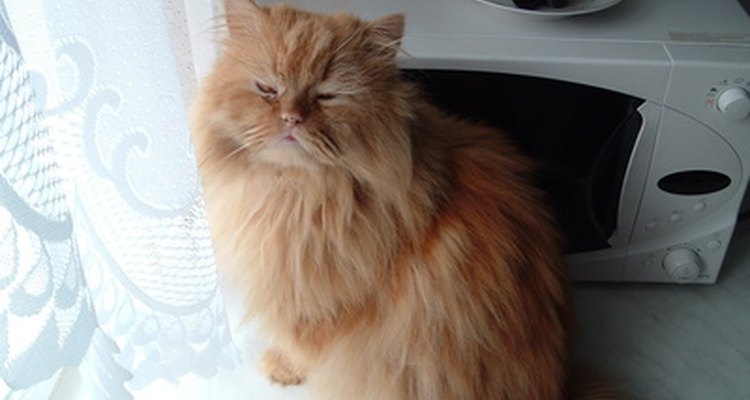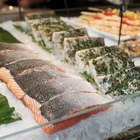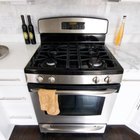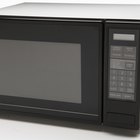
Refrigerators and microwaves are staples of kitchens, hotel rooms, break rooms and other locations where food must be safely stored and prepared quickly. While fridges and microwaves are considered safe when they are used properly, there is a risk of a safety hazard if there is a malfunction or if the device is used incorrectly.
The Effect of Human Exposure to Microwaves
Microwaves are a combination of electrical and magnetic energy. Electromagnetic radiation travels on the same frequency as radio waves. They are not as powerful as X-rays and are useful for cooking because they reflect off metal while simultaneously passing through common food packaging materials such as plastic and glass and they are also absorbed by food. High levels of microwave exposure will burn human skin and cause cataracts in eye tissue. These types of effects are only caused by exposure levels that greatly exceed the amount of microwave oven leakage allowed by the Food & Drug Administration. More worrying is the effects of low-level microwave exposure over time simply because adequate studies haven't been conducted. There used to be a concern about microwaves interfering with pacemakers, but modern pacemaker models are shielded against electromagnetic disruption.
Microwave Safe Operating Procedure
Never place metal in a microwave oven since it will reflect the microwaves in the oven and could badly damage the oven and potentially cause injury. Stay several feet away from the microwave when it is in use and also use care when taking food out of the oven to prevent burning injury since the food may be hotter than you anticipate. Only microwave food to the degree recommended by the food packaging to prevent burning or plate and glass damage. If no such package exists, only microwave for a minute or two at a time, depending on the food, and only use dishes deemed microwave-safe.
Fridge Safety Dangers
One of the biggest dangers regarding refrigerators involves food spoiling in the fridge due to improper monitoring. Food will go bad over time no matter how cold the fridge is, but if the fridge is warmer than it should be, there is an additional risk of bacteria infection and food poisoning. Freezing temperatures will slow bacterial growth but will not always kill it entirely. Leaking or malfunctioning refrigerators can leak carbon monoxide gas, which can cause serious health effects such as loss of consciousness and brain damage in high doses.
Refrigerator Safety Tips
Keep a carbon monoxide detector in your kitchen so it can go off before a carbon monoxide leak becomes dangerous. Repair the refrigerator as soon as you notice a leak in a hose. Keep food in the fridge properly wrapped to prevent air exposure and to help protect against bacterial infection. Spoiled food should be thrown away immediately and the fridge needs to be regularly wiped out and cleaned to help remove mold and other contaminants from the shelves.
Related Articles

Heating Foods in Plastic & BPA

The Steps in Cooking Raw Foods in a ...

How to Use Smartware Cookware

Cooking With Glass Vs. Ceramic

FDA Food Storage Temperature Guidelines

Bagel Bites Heating Instructions

How to Use a Probe Cooking Thermometer

What Are the Best Containers to Freeze ...

Can You Cook Frozen Dinners in Glass?

Can You Freeze Casseroles With ...

How Long Does Foil Keep Food Warm?

Tips on Cooking on a Propane Camping ...

Is It Harmful to Cook Meat in Plastic?
What Are the Dangers of Boiling Food in ...

What Are the Dangers of Tantalum?

Can You Cook Something Frozen in the ...

How Long Can Milk Stay Unrefrigerated?

How Long Can Meat Stay out of the ...

The Positive Effects of Using a ...

What Is Better for Cookware: Glass, ...
References
Writer Bio
Michael Davidson started writing screenplays in 2003 and has had a screenplay professionally produced. He has also studied martial arts since 1990 and has worked as a licensed security specialist. Davidson has written articles for various websites. He is a graduate of Michigan State University and holds a Bachelor of Arts in advertising.
Photo Credits
thoughts image by Leonid Yastremskiy from Fotolia.com